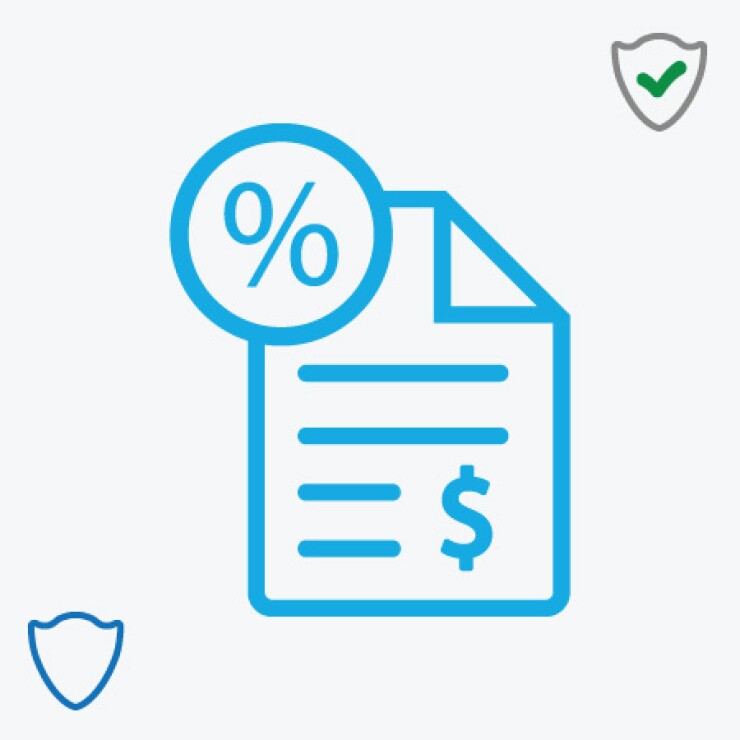Mortgage holders could see their security interest wiped out if a borrower in Texas or Nevada gets a property tax loan where the lien has priority over the first mortgage.
Property tax lending is a high-interest-rate, multibillion-dollar business that increasingly targets lower-income families and families in financial distress, and it's a growing concern for mortgage holders.
This business sprung up in Texas in the 1990s, taking advantage of a Depression-era state law that allows a third party (originally, a family member) to pay off a homeowner’s property taxes with the homeowner’s consent. The tax lien is transferred to that party to protect their interest.
The law was never intended to create a new industry, but that is what it did.
This business is only legal in two states, Texas and Nevada, and for good reason. It does unimaginable financial harm to people who are least able to absorb financial losses, and who especially cannot afford to lose their homes.
Many states currently allow local governments to sell delinquent property tax debt or tax liens to companies or private investors, which can then collect the debt, plus interest and other fees.

The new lending model created in Texas and adopted by Nevada is a different creature. In those states, homeowners are empowered to enter into loan agreements and create a contract that assigns the rights to their home to that lender, all without notifying their mortgage holder.
Property tax lenders, unlike mortgage lenders, are not required to assess the borrower’s ability to repay. If the property is worth more than the taxes, these lenders might not even care that borrowers cannot afford the loan because the lender is able to foreclose on the home in the event the loan is not repaid.
With the additional fees property tax lenders are able to charge for the foreclosure process, they make even more money on the loan than if it was paid in a timely manner. And they are paid first by auction proceeds, even before the first mortgage holder is made whole.
Borrowers should know that there are other options, but they often don’t.
Since 2014, collectors in Texas are legally obligated to create delinquent tax repayment programs for owners that cannot afford to pay delinquent taxes. They also offer tax deferment plans if the borrower is over 65.
An even better solution for servicers is to contact borrowers who have delinquent tax bills and work with them. Many mortgage companies, when notified that an owner has delinquent taxes, will pay those taxes with corporate account proceeds to protect their investment, and bill back the homeowner over time at a no or low interest rate.
Companies can take advantage of people who do not trust or are too embarrassed to ask their mortgage holder for help.
This is big business. These companies are allowed to charge credit card rates of about 18% for loans that usually range from $5,000 to $20,000 in size. Property tax lenders also are allowed to charge a great deal for services pertaining to delinquent collection and foreclosure.
This company was purchased in 2012 by Encore for nearly $200 million. “It’s a dandy investment,” said Steve Scurlock, EVP of the Independent Bankers Association of Texas. “You’re in an absolute, collateral-dependent, first priority lien position. How could you go wrong?”
The above-mentioned article shows how. In it, is the sad but too common story of a couple from a small Texas town who borrowed $20,000 in 2007 to pay taxes on their home when the husband lost his construction job. The couple struggled to pay the loan for three years, and even made a lump-sum $9,000 payment in 2010 to try to catch up. But the lender called the note, ultimately foreclosed on the house and auctioned it off in 2011.
The tax holder’s sister company bought the house for $21,084, which was the opening bid for the property. This was the exact amount owed to the tax lender. However, it was just one-third of the property’s value. Of course, that purchase meant even more profits for the lender’s sister company, but it also resulted in no excess proceeds being sent to the mortgage company to offset its loss of its mortgage asset.
The only good news is this practice is legal in just two states. The bad news is that four years ago, it was only legal in one, Texas. In 2013, Nevada passed a law allowing this business. And now, six other states, Arizona, Illinois, Missouri, New York, Oregon and Virginia, are entertaining legislation that would make this type of lending legal.
At a time when we are focused on deregulation and reducing obstacles for big business, we could well see the concept spread to even more states, so mortgage holders need to be more vigilant and do more to protect themselves from this growing risk.




